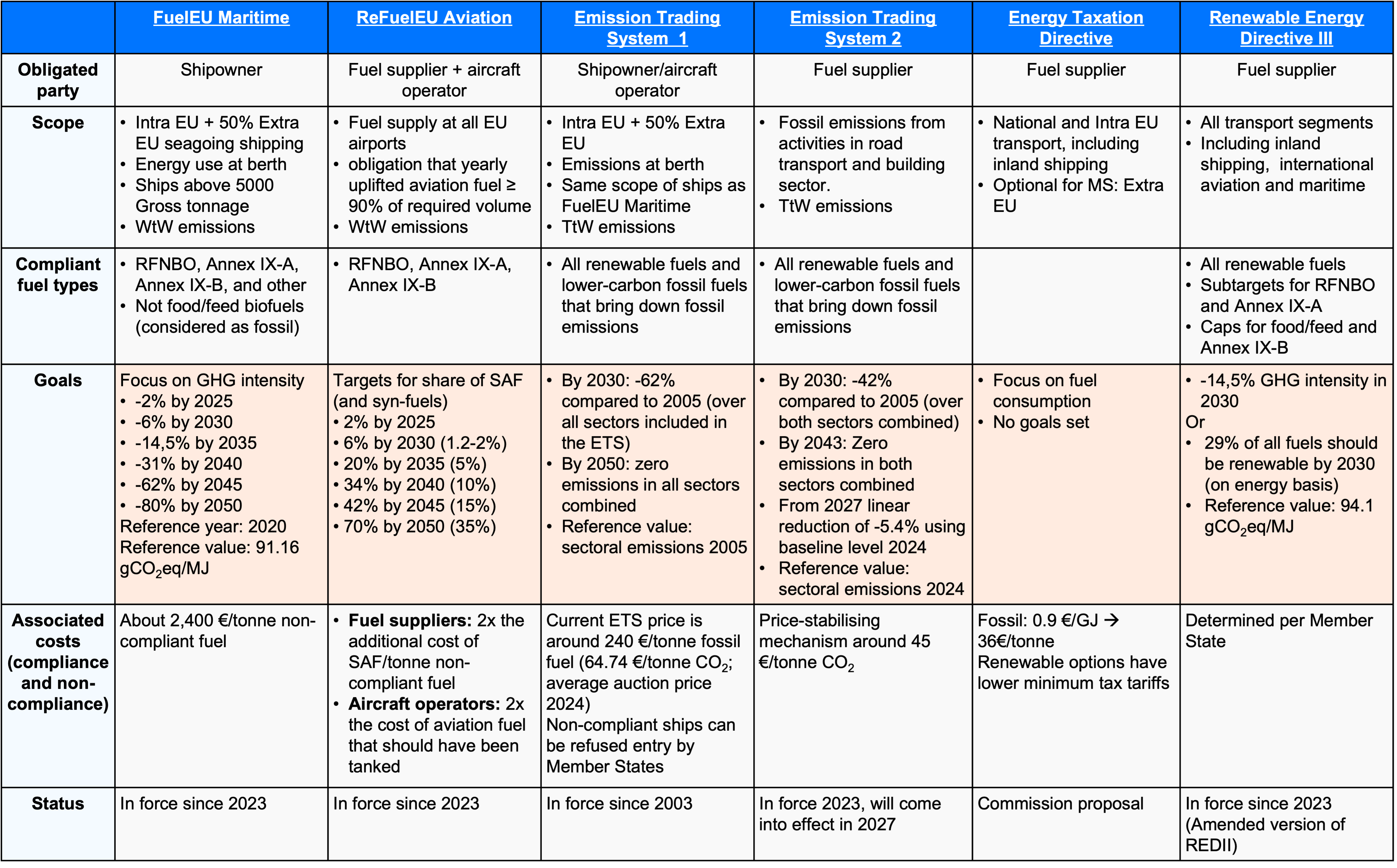Factsheet
Overview of EU Policies in transport
Feb 24, 2025
An overview of the European directives and regulations that determine how greenhouse gas emission reductions are valued in the transport sector can be seen in the table below. There are several important aspects to keep in mind when looking at this table.
- Each regulation or directive has obligations for different parties. Therefore it is always important to know who the obligated party is.
- The scope of the instruments widely varies with certain instruments that are set per sector while others are across sectors, some focus nationally, others also intervene on international transport sectors.
- Depending on the obligated party at hand, a number of fuel types made with specific raw materials are eligible to comply with the regulation or directive.
- The instruments set many goals with regard to their scope. The goals mentioned in the table are not exhaustive and can be further elaborated depending on the policy.
- Another noteworthy aspect is the consequences of the instruments, in other words what happens when parties do not comply.
- Finally, many of these instruments have seen proposals for revisions in recent years. Some are already agreed, others are still under discussion therefore it is important to make sure that it is the most recent update. The website of the European council is a good source for this[1].
[1] See www.consillium.europa.eu

Download een PDF van deze tabel.
List of abbreviations used in the table:
- RFNBO: Renewable fuel of non-biological origin
- Annex IX-A: Refers to feedstock list in the EU Renewable Energy Directive of feedstocks used for biofuels, including non-food waste materials and residues
- Annex IX-B: Refers to feedstock lists in the EU Renewable Energy Directive of mainly lipid feedstocks for biofuels, including non-food waste materials (Used Cooking Oil, Animal Fats)
- WtW: Well to Wheel/Wake/Wing - Refers to emissions resulting from the activities along the entire supply chain from sourcing of the feedstock until the combustion of the fuel. See this page for a more detailed explanation.
- TtW: Tank to Wheel/Wake/Wing - Refers to emissions resulting only from the combustion of the fuel. See this page for a more detailed explanation.
Agenda
Aankomende evenementen
Geen aankomende evenementen
DE TOEKOMST IS FOSSIELVRIJ*
Hernieuwbare brandstoffen zijn essentieel om een fossielvrije toekomst te realiseren, omdat alleen inzetten op waterstof en elektrificatie niet snel genoeg gaat om de klimaatdoelen te halen. Deze campagne belicht problemen, kansen en misvattingen met behulp van prikkelende stellingen om aandacht te vragen voor het opschalen van hernieuwbare brandstoffen.









